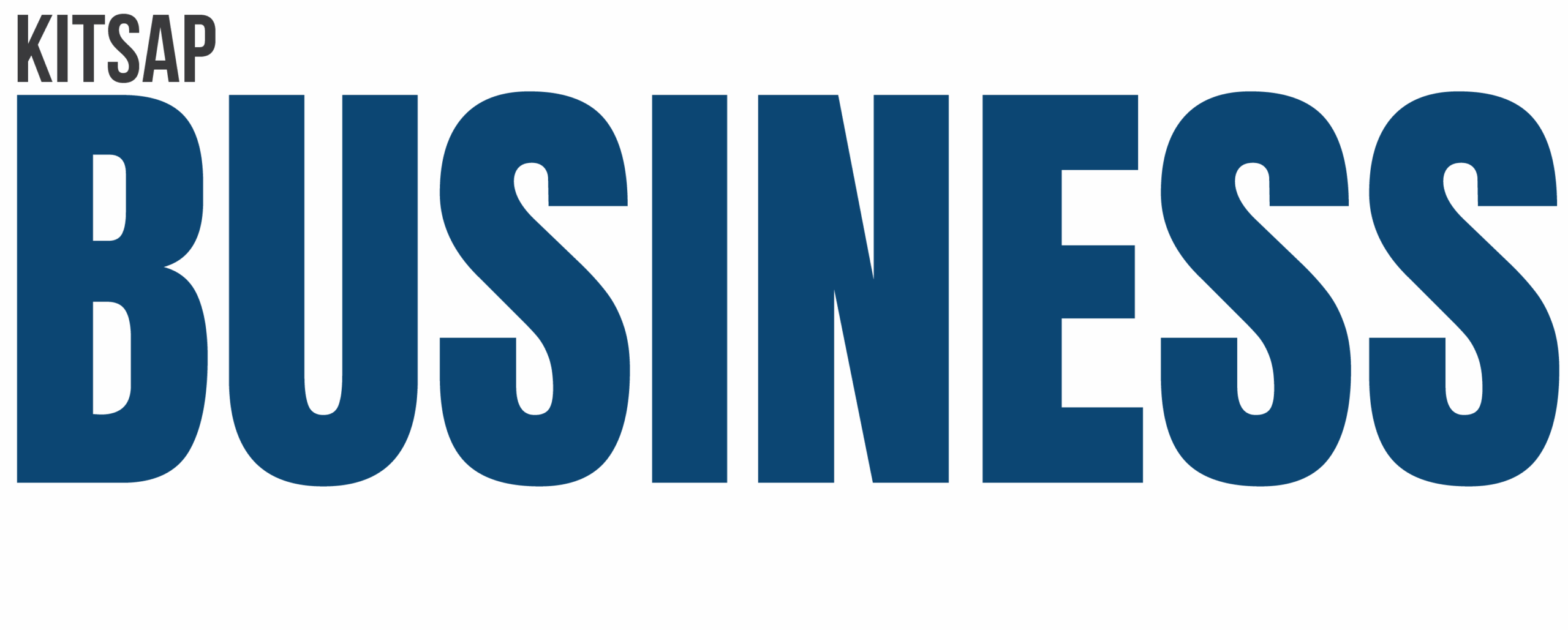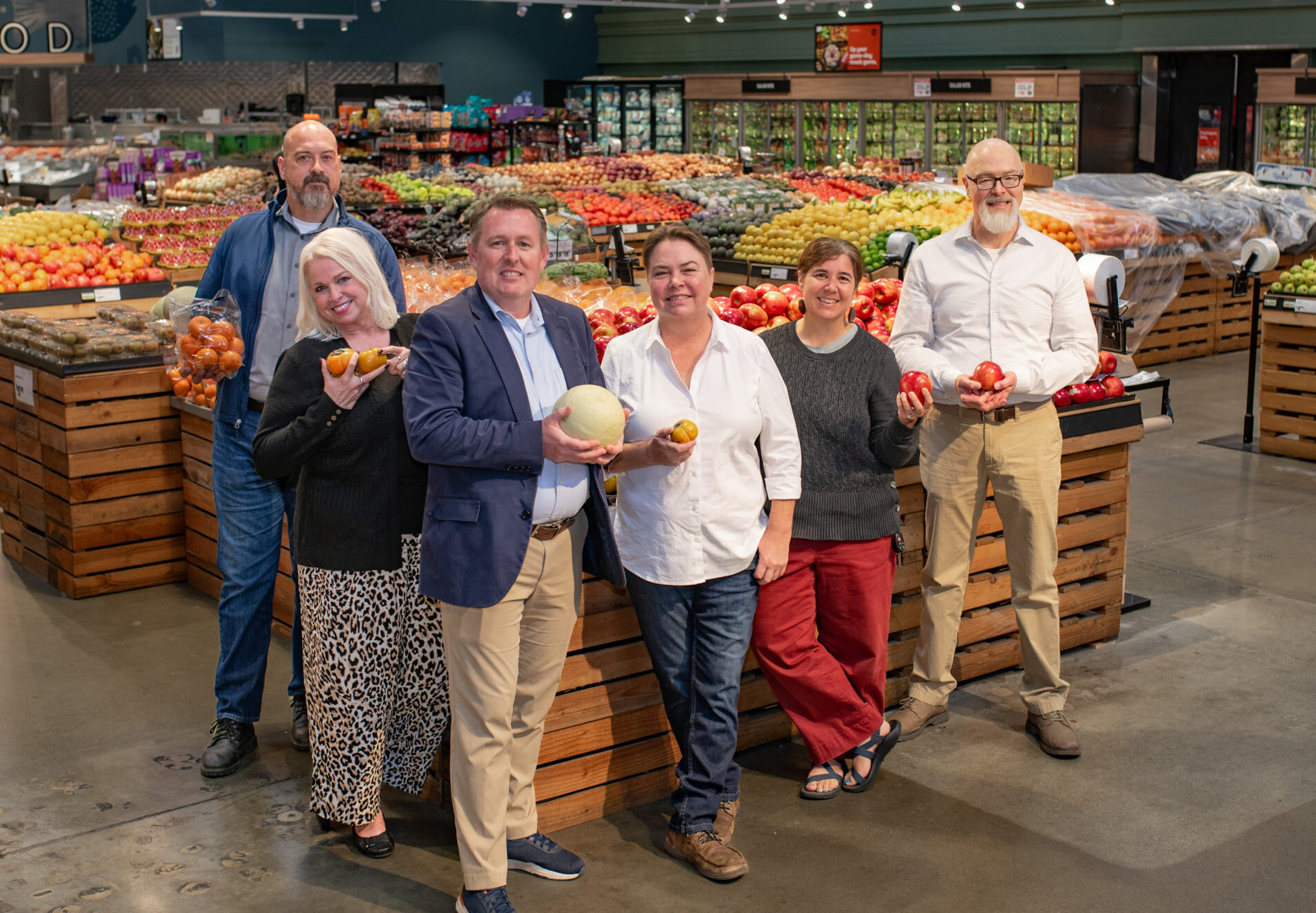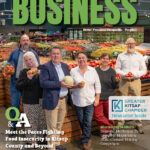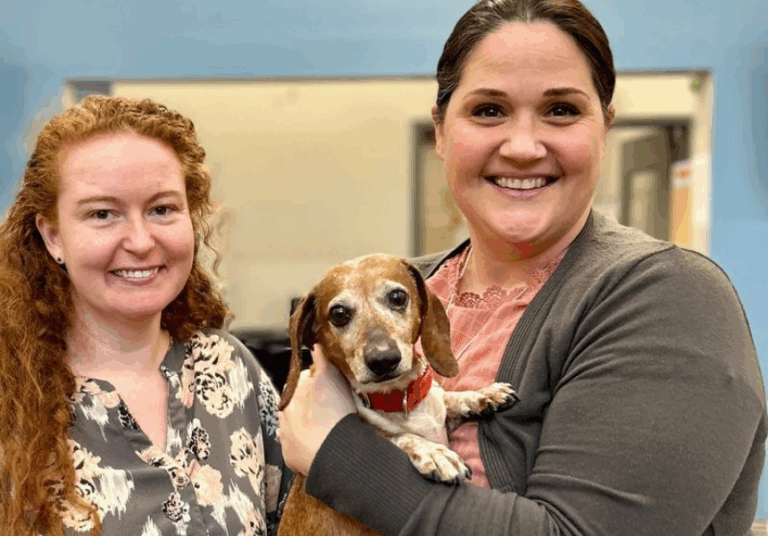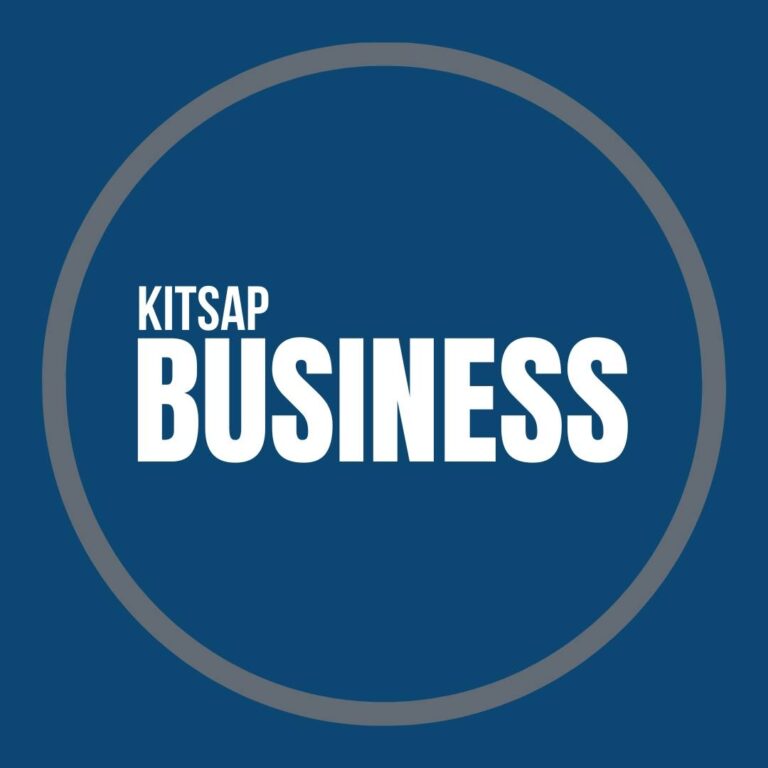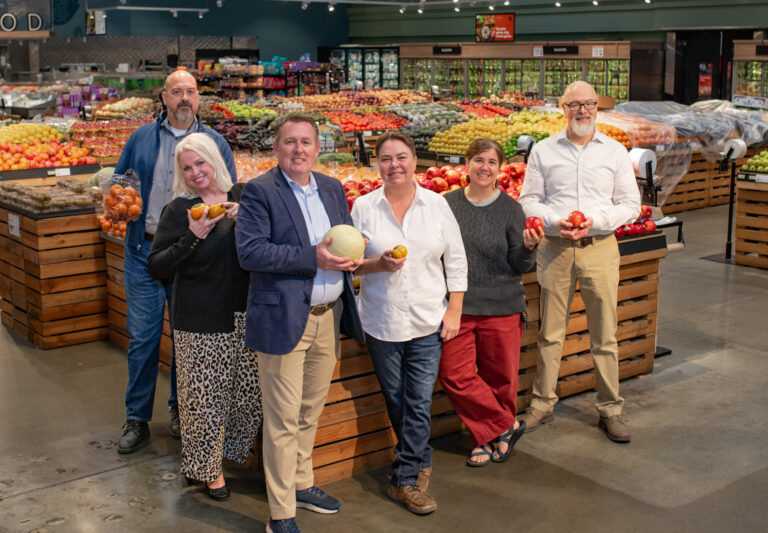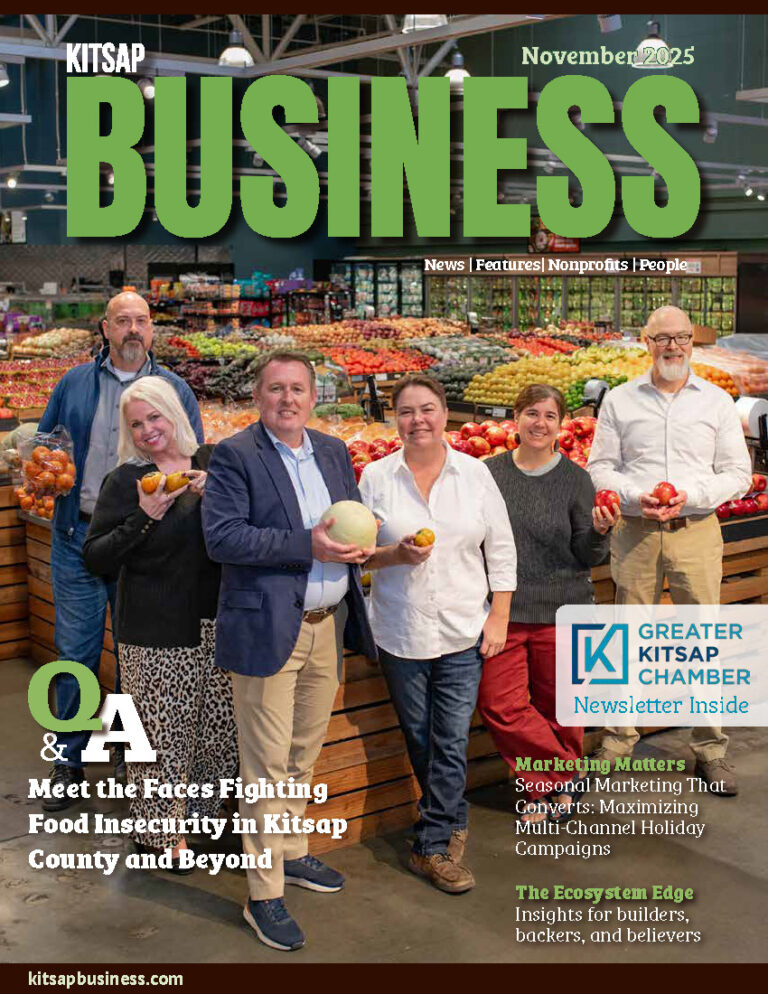Food insecurity is one of the most pressing issues facing communities across the country—and Kitsap County is no exception. Behind every food bank is a dedicated team working tirelessly to ensure that no one in their community goes hungry.
Food insecurity remains one of the most urgent challenges facing communities across the country — and Kitsap County is no exception. Every local food bank represents a network of dedicated professionals and volunteers working tirelessly to ensure that no one in their community goes hungry.
In this online edition of our Executive Q&A series, seven leaders from food banks across Kitsap County share what drives their missions, how they’re adapting to meet growing demand, and what gives them hope for the future. Their insights reflect not only the challenges of today but also the collaborative spirit that sustains their work.
Responses are presented in alphabetical order by organization name.
Participating leaders include:
- Cori Kauk, Bremerton Foodline
- Chris Benson, Central Kitsap Food Bank
- Charlie Thompson, Fishline (Poulsbo)
- Maria Metzler, Helpline House (Bainbridge Island)
- Mark Ince, ShareNet Food Bank (Kingston area)
- Jennifer Hardison, South Kitsap Helpline
- Joseph Crain, St. Vincent de Paul (Bremerton)

What drives your food bank’s mission, and how do you see that impacting Kitsap County today?
Kauk, Bremerton Foodline:
Bremerton Foodline’s mission is to ensure anyone who is food insecure has access to nutritious, culturally thoughtful products. Our goal is to put clients in the center of our decisions and the work we do. At Bremerton Foodline we do our best to have a regional approach to addressing hunger and food insecurity in our community. This has positively impacted Kitsap County by deepening well-established partnerships and building and creating new partnerships.
Benson, CK Food Bank:
Our mission statement is that “We provide food and community resource information at no cost in a caring and respectful manner to those in need in our community while preserving the dignity of those we serve.” Food insecurity is tethered to other issues such as homelessness, mental health, etc.
Thompson, Fishline:
At Fishline, we provide basic needs in extraordinary ways. When you come to our free food market, you shop and choose which items you want for your family. We always have a wide variety of items, including fresh fruits and vegetables. We also offer case management services. One of our navigators will meet with you and tailor support to your needs. We pride ourselves on a welcoming, respectful environment for all our visitors.
Metzler, Helpline House:
Helpline House’s mission is Neighbor Helping Neighbor. In a time when there is so much divisiveness, neighbors leaning in to support each other feels like the path forward. Bainbridge has really embraced that in their support of Helpline House, and from what we can tell, Kitsap County food banks are all generally experiencing people surfacing, asking how they can help, leaning in, etc. All of us in Kitsap, taking this moment to look around, see what can be done here, see how we all can make a difference here – and then jumping in is so inspiring and should be replicated all over.
Ince, ShareNet:
Our mission is driven by the need that exists in our community, and the fact we have a leading role in addressing that need, with help from community supporters like donors and volunteers. Reducing hunger positively impacts quality of life for many in our part of Kitsap County: Kingston, Hansville, Indianola, Eglon, Port Gamble, and Little Boston.
Hardison, SK Helpline:
What drives our mission is that we know children, adults and seniors in our community are going without food every day. We work tirelessly here to make sure that we can connect those in need of food and other services with what they need to help improve their quality of life. With every interaction, we strive to not only serve them but to make sure we help them meet their basic needs (and then some) to the very best of our abilities.
Crain, St. Vincent de Paul:
A network of friends, inspired by Gospel values, building a more just world through personal relationships with and service to our neighbors in need. We are a natural component of our community, serving the most underserved in our community through love and dedication from our neighbors. We are an integral part of our local ecosystem where donations of time, talent, and treasure stay local to uplift the marginalized in our community.
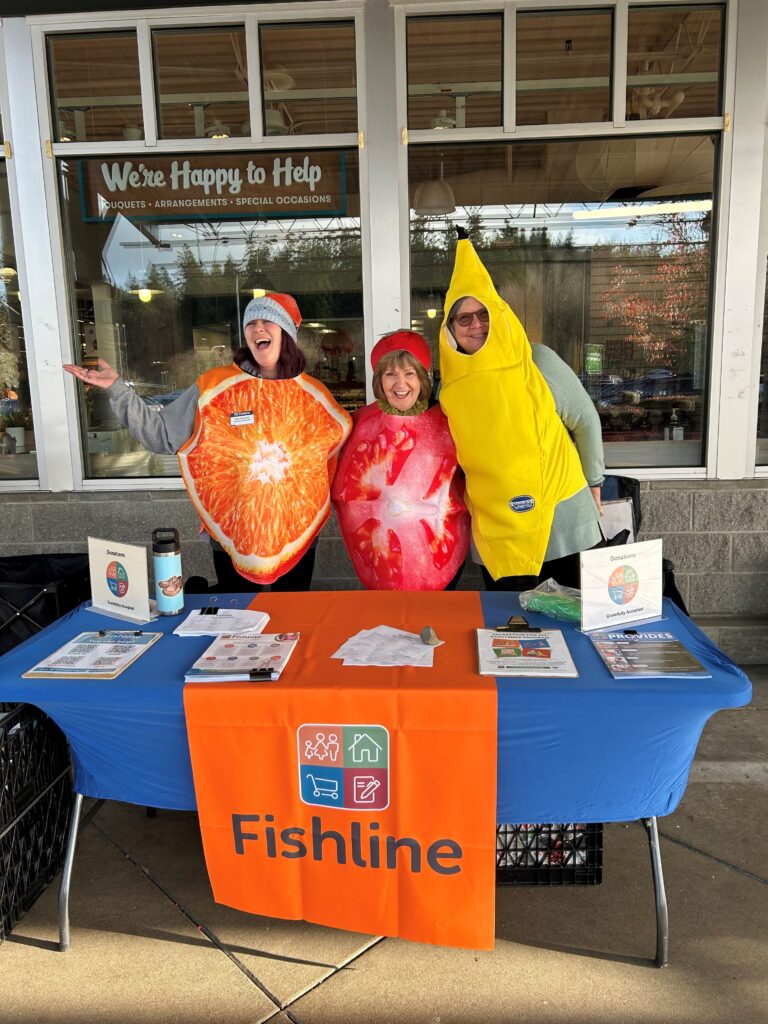
What are the biggest challenges your food bank is facing right now, and how are you working to overcome them?
Kauk, Bremerton Foodline:
Right NOW we are addressing how we can provide greater support and step in for military and federally employed families during the shut down and families benefiting from the WIC closures. These two demographic populations in Kitsap County are at risk with the temporary shut down by our federal government and our local food banks are here to step up and fill the gap as best as we can.
Benson, CK Food Bank:
We definitely are in need of volunteers. We are expanding our outreach for them by reaching out to the churches, high school service clubs and such.
Thompson, Fishline:
The biggest challenge for Fishline is that the growth in need for our services is outpacing our ability to source food and other essential items. We are experiencing significant changes in how we receive food. Many of the traditional sources of food are decreasing due to government cuts and other disruptions. We are having to purchase more food than ever before directly from suppliers.
Metzler, Helpline House:
We are (all) facing rising demand for our services while seeing government funding shrink or be eliminated. We are fortunate to have a community that has leaned in. Individuals and community groups have strategized around food drives; foundations and donors have taken action with financial gifts. One of the coolest responses was from Friends of the Farms on Bainbridge Island who organized around the loss of the Local Food Purchasing funding stream – they found donors and matching gifts and applied for grants; they used their connections in the farming/growing/producing community to bring local, nutritious, fresh foods to the shelves of the food bank. This benefited the farming community as well as all those who rely on shopping at the food bank. It was a stunning, humbling, and generous response to the loss of government support.
Ince, ShareNet:
We can no longer rely on donated food to come anywhere near meeting the need of food insecurity in our area, therefore we must purchase a significant amount of the food we distribute. Just as we must purchase more food than ever, the cost of food has never been higher, and there are no signs food prices are coming back down. Surging client needs, surging food prices, and a challenging funding picture with some streams cancelled or in jeopardy are our biggest current challenges.
Hardison, SK Helpline:
The biggest challenge right now is ensuring that we have the food and funding necessary to meet the high level of need our agency is seeing right now.
Crain, St. Vincent de Paul:
There will be a financial gap for food purchases this year. In these times, the community steps in with local non-perishable food drives or with monetary donations to fill in this gap.
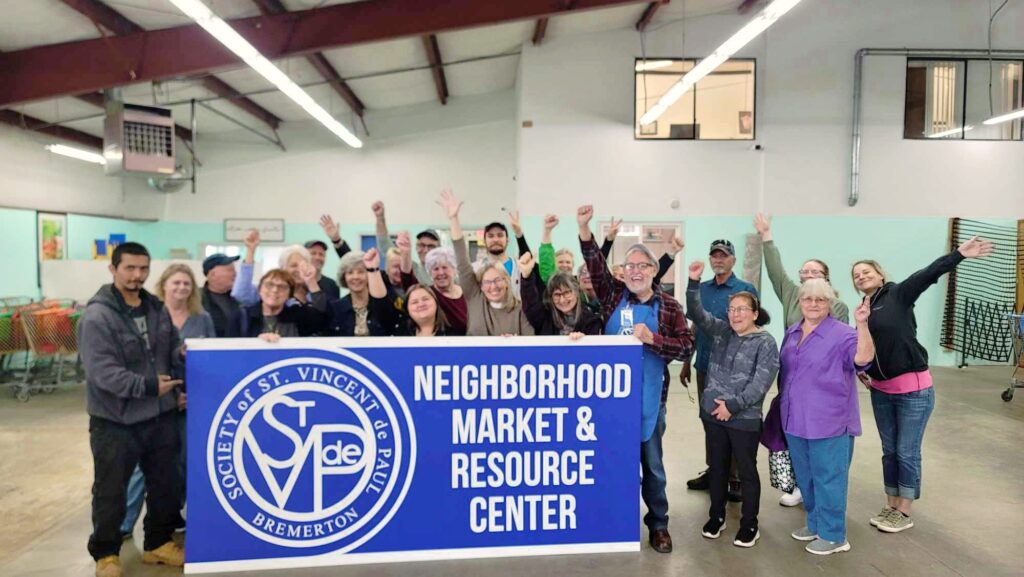
Demand for services continues to rise—how has your organization adapted to meet those needs?
Kauk, Bremerton Foodline:
Bremerton Foodline has played an important role in acquiring more free food for Kitsap County Food Pantries. We recently established a partnership with Feeding the Northwest and will be receiving a semi truck full of fresh produce on the monthly basis. Additionally, we are working closely with partners like Food Lifeline to strategically increase their support of food pantries in our county. As food pantry partners, many of us have been collaborating on a shared program called theFOODproject, which is an every other month food drive that benefits Kitsap and Mason County food pantries.
Benson, CK Food Bank:
We have fine-tuned our asks by reaching out to more businesses to hold food drives on our behalf.
Thompson, Fishline:
At the beginning of 2024, we expanded our market hours to Monday-Saturday from 10:00 AM – 5:00 PM. The additional hours, especially being open on Saturdays, have allowed us to better serve the community. We are also purchasing more food than ever. Next year, we will introduce a mobile food market that can take food into the community. This will greatly increase access throughout North Kitsap and beyond.
Metzler, Helpline House:
We have had to make the painful decision to shift our distribution model to once per week. We used to be able to offer shopping whenever we were open, knowing that some weeks, households need a little more or that some households cannot carry all that is needed for a week’s worth of shopping in one trip. However, due to increased demand, we limit shopping to once per week and there are more restrictions on items in the food bank than there used to be.
Ince, ShareNet:
We’ve increased our purchasing, increased our volunteer staffing, and added a box truck.
Hardison, SK Helpline:
In 2024 we provided groceries to just under 36,000 individuals for the year. Within that same time period we have served more than 40,000 people in 2025, We have definitely been purchasing more food to keep our shelves stocked. Thanks to a number of generous grants we expanded our food purchases by more than $100,000 this past year alone. This month, we also began opening our food bank an hour early to help us to better accommodate the higher numbers of people we are seeing. Yesterday in just the first few hours of the day, we served the majority of the 108 households that visited us.
Crain, St. Vincent de Paul:
As part of our strategic plan, we have relocated our Thrift Store over to Wheaton Way in order to relocate, expand, and change our food pantry programs. We now operate out of a much larger space, with an actual parking lot to improve access, and our food delivery program is now a self-shopping model in line with current best practices. I feel as though we have taken this experience a step further in that we are set up like a local farmer’s market! In line with a market experience, we offer free clothing too!
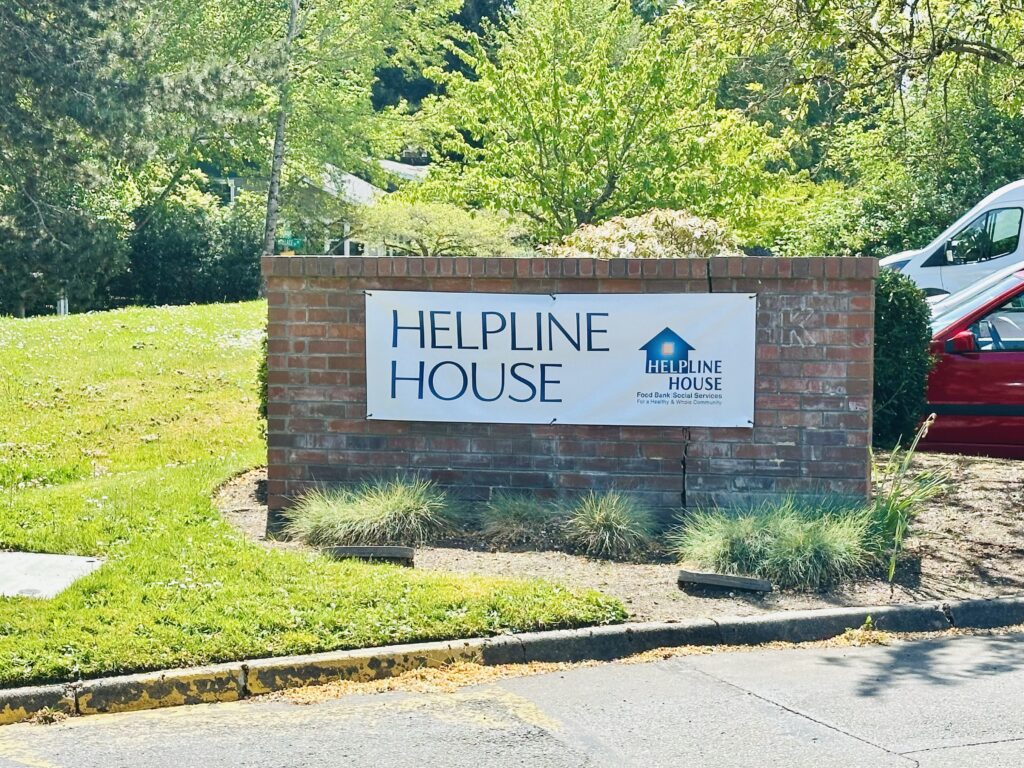
How do you collaborate with other nonprofits, schools, businesses, or government to strengthen your impact?
Kauk, Bremerton Foodline:
Bremerton Foodline has been one of the lead agencies to help establish a Bremerton Nourishing Network (BNN). Once a month a group of Bremerton nonprofits, churches, service groups, county and city employees, and donors gather to discuss our community and organizational needs. The focus is on building relationships and committing to support each other in a variety of meaningful and creative ways. The goal after building relationships is… Is to decrease duplication, increase efficiencies with limited resources, and increase collaborations.
Benson, CK Food Bank:
We work closely with BFL, NKFL, and others, partner with CKHS , my manager and I share military connections that help us connect to the base through service members we both know to make sure they are taken care of behind the base gates.
Thompson, Fishline:
Fishline collaborates with a variety of community partners. One such collaboration is our Food for Thought Program. We partner with the North Kitsap School District to provide weekend food for children that would otherwise go hungry. School counselors identify children in need and Fishline brings the food to the schools where they discreetly provide it to the students.
Metzler, Helpline House:
We can only exist due to the partnerships we have cultivated over the years and due to the generosity those partnerships have engendered within our community. I already talked about an incredible example of a mutually beneficial program with Friends of the Farms. A local school does a food drive and then has the entire student body bring it all to us in their backpacks and walk through the food bank so they have that shared experience. A local business allows ’rounding up’ at the register in support of Helpline House. All of these (and more!) are essential to normalize the ‘circle of giving and receiving’ (also in our mission). At various points in our lives we are on different parts of that circle, but we are all a part of that larger circle.
Ince, ShareNet:
We partner with other individual food pantries on specific projects, partner with local small farmers, gardens and growers to increase the amount of fresh produce we can offer, and partner with all Kingston public schools to deliver our Food2GO backpack program.
Hardison, SK Helpline:
We have very close relationships with so many local businesses, churches, schools, nonprofits and civic organizations. They share our social media posts, host food drives, provide us with volunteer help, hold fundraisers and just provide general support and assistance as needed. We also have a close relationship with the St. Vincent de Paul food bank in Bremerton and collaborate with them on a regular basis, meeting to share ideas and resources. We are collaborating now on a joint first-time holiday fundraiser with our two agencies in December. We will be sharing the food donations and proceeds raised. This event will not only help us to share SK Helpline’s critical work in the large south end of the county but will also help to highlight the great work SVdP is doing in Bremerton and surrounding areas around hunger-relief.
Crain, St. Vincent de Paul:
We do this like breathing. It is paramount to our mission. We are woven into the fabric of Bremerton. We work with Kitsap Public Health, Kitsap Mental Health, Bremerton Housing Authority, Kitsap Community Resources, Kitsap Bank, Kitsap Food Bank Coalition, Kitsap Public School District, Local Churches, Kitsap Department of Health and Human Services, Olympic College, Salvation Army, and more.
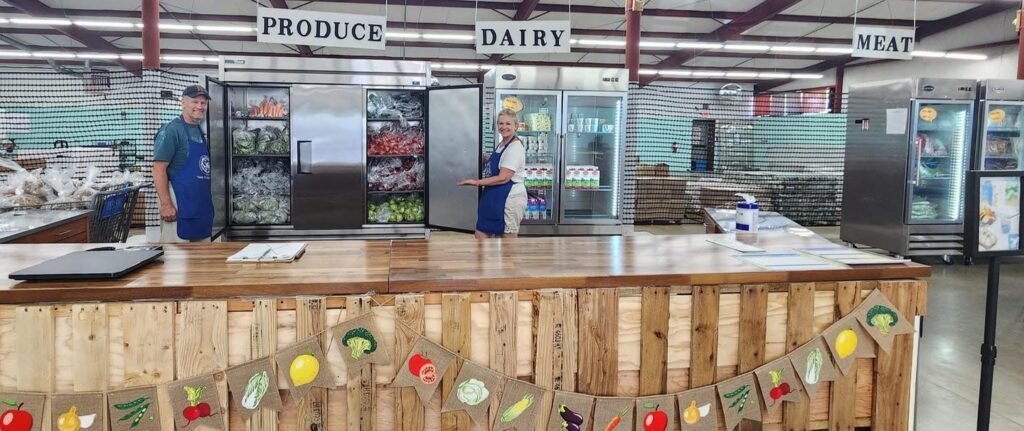
Can you share an example of a new program, service, or creative approach your food bank has implemented recently?
Kauk, Bremerton Foodline:
Bremerton Foodline started a Groceries On the Go, grocery delivery program for low income seniors who struggle with transportation and mobility issues. With a grant from Kitsap County Aging and Long-term Care service we established Groceries On the Go in April of 2025. Currently we are delivering groceries to 51 households every other week with the partnership of Meals on Wheels and Kitsap Harvest.
Benson, CK Food Bank:
We are the program administrator of a WSDA program for seniors (CSFP), which provides 41 lbs of non-perishable food per month to 650 seniors in 17 low income senior apartment communities and 2 food banks – we are adding fresh produce and are looking to expand that program.
Thompson, Fishline:
At the beginning of this year, we started operating on Saturdays. This has greatly increased accessibility to our market, especially for those that work a more traditional work week and may not be able to access the market during the week.
Metzler, Helpline House:
Friends of the Farm Share the Harvest program (as described above) is such a great new program and creative approach that was born by conversations about how can we provide more food for our clients AND replace lost income for local growers and producers. Another creative approach is a community member’s ‘Veg Club.’ She took the initiative to reach out to friends and contacts to see how she could support them to grow food for Helpline House. She found unused or underused pea patches; she connected interested folks to those and then provided support for new ‘backyard’ growers and created a small community, or a ‘club’ if you will, her Veg Club. Finally this is a similar, and very needed new creative approach but some community members have grouped together to create a Protein Pod for Helpline House. A community member created a pod of their friends and neighbors and they have committed to purchase a specific amount of protein for Helpline a week and have it delivered weekly. They are looking into avenues – bulk purchases, subscriptions through farms, partnerships, etc., all in the service of providing a reliable steady source of protein for the shelves.
Ince, ShareNet:
Our Meal Kits provide all the ingredients for a specific recipe, and are tailored specifically for our senior clients, including frozen chopped onions, mushrooms, carrots, etc. for seniors who may want to prepare a home-cooked meal but can no longer do steps like chopping. Helping local seniors in need stay independent and age in place is a big component of our work.
Hardison, SK Helpline:
We launched two exciting new programs last year to provide more help to two specific demographics, seniors in need of healthy food and adults with medical issues that could be improved with better nutrition. Senior Sprouts is generously funded through Kitsap County Aging and Long-Term Care and provides seniors with high protein and dairy items, fresh fruits and vegetables and very nutritionally-dense food items that tend to be more expensive and out of reach for so many seniors’ budgets. We have just entered our second year of Senior Sprouts and it has been more popular than we could have ever imagined. So popular in fact, that we plan to develop a specific senior section for the food bank when we move to our new building later this fall. The Medically Tailored Food Box pilot program we launched in partnership with Virginia Mason Fransiscan Health through very generous funding from Olympic Communities of Health has been very well-received by participants. Medical providers at the Port Orchard clinic screen their patients for program eligibility. Most are homebound, all are in need of food and healthier food to help improve their medical conditions. We coordinate DoorDash deliveries of healthy fruits, vegetables and proteins along with other items packed specifically for the program by Cascadia Produce. We hope to be able to expand this program to other areas of Kitsap later this year or in early 2026 if possible. It has been another incredible partnership that helps so many. We also received a generous grant from the DV & Ida McEachern Trust to expand our children’s summer food program and add additional food support for families with school-aged children during school breaks.
Crain, St. Vincent de Paul:
We just recently added clothing to our Neighborhood Market.

What are your priorities for the next few years, and what gives you hope for the future?
Kauk, Bremerton Foodline:
In the next several years I’d like to have a clear understanding of what the food and nutritional gaps are in the Bremerton community and develop a shared strategic plan with partners to address those gaps. Additionally, I’d like to have a long term plan on how BFL can replace our old shed with something that benefits the community.
Benson, CK Food Bank:
We purchased our adjacent property and are using it to expand our waiting area for clients and provide additional services through partnerships with other organizations to provide services other than food.
Thompson, Fishline:
Our community’s generosity gives me hope for the future. While we are experiencing an increased need for services, we are also receiving increased support from the community. In the coming years, we will focus on increasing access to food and other services. One way we will do that is with the introduction of a mobile food market early next year. This vehicle will take food into the community, making it more accessible to those with limited transportation. In addition to food, a navigator will also be on site to increase access to additional services we provide.
Metzler, Helpline House:
Helpline House is in the process of building a new facility. We long outgrew our previous facility that we occupied for more than 40 years. The community changed a lot during those 40 years and, most notably, demand for the food bank grew enough that we could not comfortably serve all who were coming to shop on a regular basis. Our priority for the next few years is finishing that project, moving in, and responding to what the community’s needs are as they continue to evolve and change. There’s a lot that gives us hope for the future. It’s easy to look at the news right now and feel defeated and fractured. But come to a place like Helpline House (and I’m certain every other food bank in Kitsap County) and you will truly see the circle of giving and receiving. You will see volunteerism, philanthropy, a true sense of community; you will see folks of all ages interacting with each other. You’ll see relief, laughter, friendships. We live in a special place and it’s made special by our communities.
Ince, ShareNet:
Our priorities are to continue to build infrastructure to meet needs. When we get reports from front line school staff about how our Food2GO program impacts their students in positive ways, helping them with focus and learning, that gives us hope. When a senior we’re helping is able to remain independent and age in place aided by our efforts, that gives us hope.
Hardison, SK Helpline:
Our priorities for the next few years are to move our agency into our new 8,400 square foot building made possible through a legislative appropriation from Senator Patty Murray that we have spent the last 10 months working on. This was a former restaurant and we have converted the dining area to a self-serve food market more than twice the size of our existing food bank now. We plan to develop the former sports bar there into a large community room that can be used for client services, classes, community meetings, events and more. Other service providers offering assistance with legal needs, housing, energy assistance, job training and more will be invited to join us in the new space on a regular basis, Plans for the restaurant’s commercial kitchen include using it to process bulk foods we receive (like pallets of brown bananas) into items that can stock our food bank. From breads, to soups to dehydrated fruits, our plans for processing and preserving are limitless! We then plan to launch a culinary job training program that will train those in need of skills while simultaneously providing hot, homestyle meals for those in need. Our plan is also to utilize the commercial kitchen to develop a revenue-generating social enterprise model, possibly through weekend catering or a weekend breakfast-only cafe. This will eventually not only help to employ more people but it will help us to better support ourselves, making us less dependent upon grants and other funding that can be uncertain or confirmed but then pulled at any moment as we’ve seen with this new administration. At our former site, we will be bringing back our gardens next spring to support our food bank and kitchen needs through the fresh produce and herbs we grow there. Hope for the future for me comes from knowing that regardless of what is happening in the nation around hunger and food-insecurity, together, our community is helping us to create an incredible space here in South Kitsap that will be an important food, resource and assistance hub for those in Kitsap county for decades and decades to come.
Crain, St. Vincent de Paul:
We are currently in the planning stage of a two-phased development project which will maximize over 2 acres of land that we own here in between N. Callow and N. Wycoff. Star of Hope is the first phase where we will expand our women and children’s shelter by 17 beds and create a new 4-story building comprised of 38 units of mix-use affordable housing; 28 units of Permanent Supportive Housing, and 10 units of Transitional Housing to be utilized by women and children in our own program and in partnership with WA State Department of Corrections, primarily women leaving Purdy Women’s Prison to help reduce recidivism. Phase 2, in partnership with Bremerton Housing Authority, will be 90 units of affordable housing for the City of Bremerton along with a new Childcare facility on the first floor.
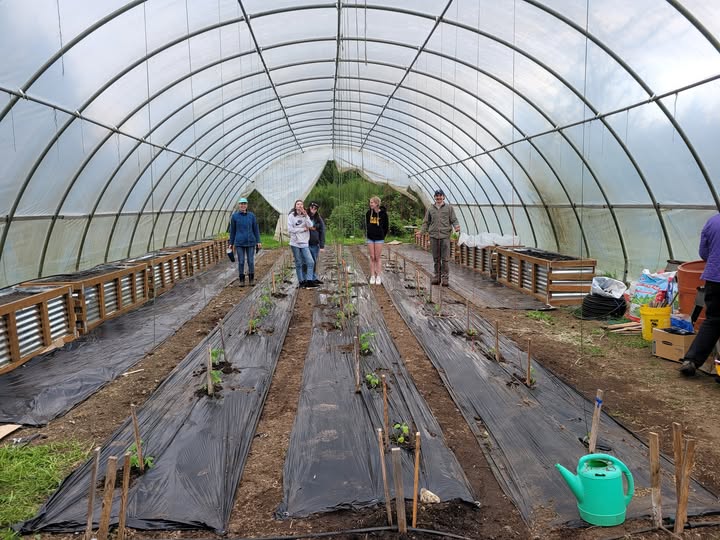
What is the most meaningful way people in Kitsap County can support your work right now?
Kauk, Bremerton Foodline:
By becoming a monthly financial contributor you help increase our sustainability.
Benson, CK Food Bank:
We ask for people to donate their time through volunteering and money to help us put more food on the shelves to help our neighbors.
Thompson, Fishline:
The most meaningful way people can support Fishline is by contributing time and money. We need more volunteers to help us serve the community and we need more money to fund our ability to meet the increased need for food and other services.
Metzler, Helpline House:
We always gratefully accept donations of both food and finances. Hosting a food drive with your neighbors, at your local grocery store, or with your club/activity are fun ways to get others involved. Or, consider becoming a regular volunteer – a weekly shift at the food bank makes a big difference to the hundreds of households who shop here on a regular basis.
Ince, ShareNet:
The most meaningful way people in Kitsap can support us is by donating food, funding, or time, and by paying close attention to what’s going on with their neighbors and their local food bank.
Hardison, SK Helpline:
One way is to share our work with others–YOU can sometimes be our very best PR people! Help us reach those that might need our services. Please tell others what we are doing so they can get involved as volunteers to help, too. Host a food drive. Remember to help during the summer months when charity isn’t really on people’s minds like it is during the holidays. Consider becoming a recurring financial donor on our website. Food donations are always wonderful but you can’t fill the gas tank of your truck to pick up food with canned corn or pay your power bill for the refrigerators and freezers needed for an operation of this size by bartering or with IOUs. Financial support is critical. Non-profit is a tax status, not a business model. While providing food and other assistance to thousands of our neighbors each month, we are also operating businesses requiring insurance, rent, vehicle repairs, monthly utilities, CPA audits as well as many other overhead costs.
Please just get involved in some way on a regular basis. We especially need more younger people to realize the importance of philanthropy. We are seeing a large gap between the ages of those offering support to agencies like ours. Many of the seniors who have helped physically and financially for years and years really need our younger citizens engaged and ready so they can pass that philanthropy torch when the time comes.
Crain, St. Vincent de Paul:
Volunteer at our Neighborhood Market and Thrift Store. Non-perishable food donations and monetary donations to our Neighborhood Market. Donations to our Star of Hope Capital Campaign.
Keep in touch with our news & offers
Subscribe to Our Newsletter
Thank you for subscribing to the newsletter.
Oops. Something went wrong. Please try again later.
